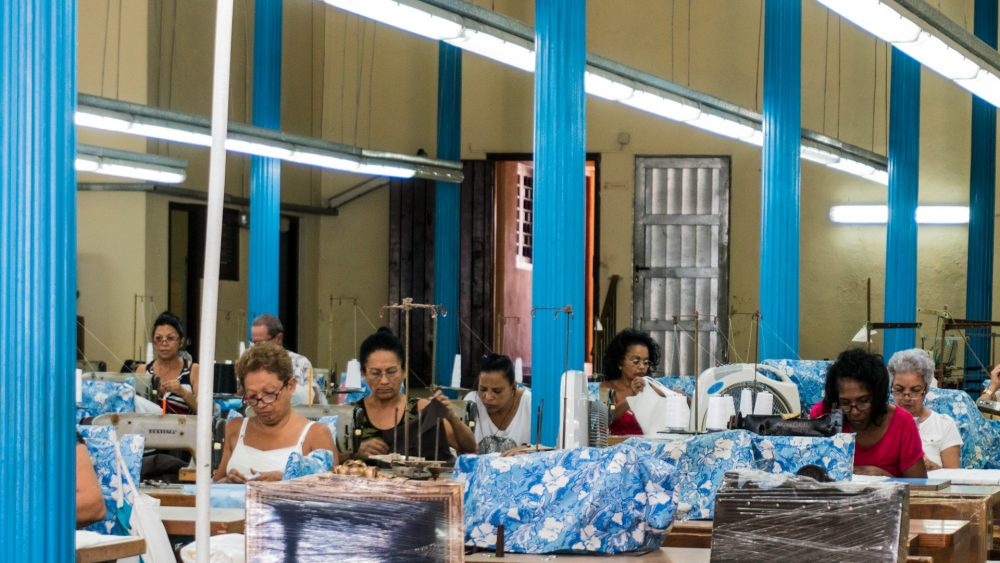Following the far right violence in UK towns and cities this summer, LIz Zeidler reflects on how a different economy might help end hate and exploitation
A lot is being written about racism at the moment. With far right violence bringing terror to our towns and cities in recent weeks, and hate-fuelled narratives pervading social media and politics around the world, many are asking: why is this happening and what can we do?
It is easy to lose hope, and easy for those who have been working a lifetime on building a better world to think that work has been in vain. But this is not a new problem, and it will not be solved by any one person, organisation or movement. The fear of the ‘other’ has been around for millennia, and for almost as long, those in power have been actively fuelling that fear for their own gain.
In the 21st century, our prevailing economic model has us striving for endless ‘growth’ of capital as what we value most. If the production and consumption of more ‘stuff’ – as measured by Gross Domestic Product (GDP) – does not continue to grow every month and year all the resources of the state and beyond are channelled into turning that around. For that to be possible, the ‘many’ must continually work longer and fight harder for fewer and fewer resources on a finite planet – to fuel the growth in wealth of the few in who control the capital.
Public support in the West for colonialism was only made possible by centuries of misinformation and propaganda to dehumanise, diminish and incite fear and hatred towards people from across Africa, Asia and South America. So too today. Modern capitalist competition is still fuelled by fearmongering about people of other faiths, skin colour, sexuality or economic standing.
In the drive to perpetuate the myth that blind economic growth will lead to the trickledown of wealth and wellbeing for all, we are force fed a daily diet of blame, division and hatred, to ‘explain’ why that has not happened for the last 200 years. The system is churning out division so that those who have the least do not blame the super-rich, but instead look around for scapegoats among those that have even less.
In reality that ‘trickledown’ hasn’t happened because the economic system is designed for it not to happen. It is designed to make the rich endlessly richer, and it has spectacularly succeeded. We need to urgently wake up to this and stop blaming each other or those even less fortunate than ourselves, for our economic, social and environmental woes.
We need an economy that refuses to see people and planet as merely resources to fuel wealth
Instead we need to organise around a fast emerging economic model that puts the wellbeing of everyone – now and in the future – as our north star.
We urgently need an economy that refuses to see people and the planet as merely resources to fuel wealth, but rather puts their ability to thrive as its definition of success. In such an economy, diversity is our greatest strength as it brings with it a wealth of different wisdom, knowledge, skills, ideas and abilities to put towards our collective drive for better lives for all.
Throughout nature, diversity is essential for life and for progress. From the ecosystems of our ancient forests to the wealth of our oceans – diversity brings resilience and benefits for all elements of the tree of life. We, the arrogant humans often seen to be at the top of that evolutionary tree, fail to learn that lesson at our peril.
Such an understanding of diversity is not really ‘new’ at all. Indigenous peoples the world over have lived in balance with, and hold respect for, the ‘other’ all around them. But new versions of this ancient wisdom, in the shape of ‘wellbeing economics’ are quietly being adopted and embraced in pockets around the world. A model that values every person and every natural ‘resource’ as the key to our collective success. If adopted at scale, this change could herald an end to the age of extreme inequality, racism, bigotry and violence. That cannot come a day too soon and I for one will be pushing for that with every breath I have.
Liz Zeidler, CEO
- This is part of a longer blog by Liz Zeidler exploring capitalism’s connections with inequality and division, and its origins in the rise of colonialism. You can find the original piece here.
- If you’d like practical support to help shift your organisation, community or region to a Wellbeing Economy approach, get in touch at hello@centreforthrivingplaces.org



Comments are closed.